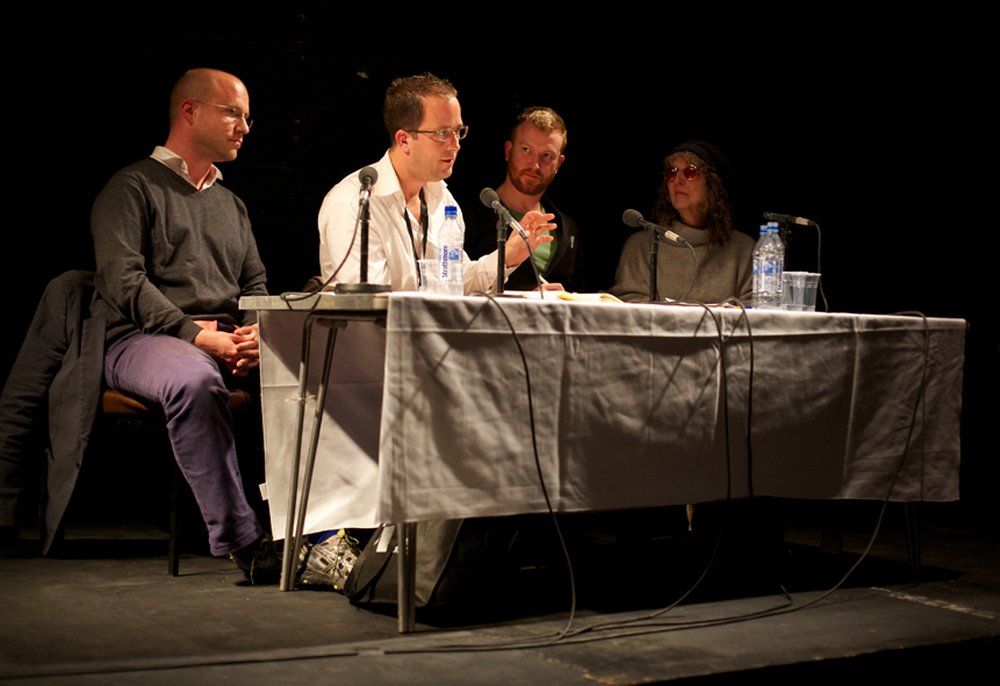
Arika have been creating events since 2001. The Archive is space to share the documentation of our work, over 600 events from the past 20 years. Browse the archive by event, artists and collections, explore using theme pairs, or use the index for a comprehensive overview.


Film Programme: Feedback
John Butcher Luis Recoder Paul Sharits Various Artists Toshiya Tsunoda
The pieces in the programme switch between silent film/ imageless sound, but we wanted to have a think about how ideas can take up residency on either side of the sound/ image border, without having to inhabit both at the same time.

The Songspiels of Chto Delat?
Chto Delat
The Songspiels take on a mode of musical theatre developed by playwright Bertolt Brecht and composer Kurt Weill in the early twentieth century, presenting political and social concerns through the accessible and (often funny) form of song.

The Indivisible or Inadmissable Committee
When one calls a strike, who hears the call, who attunes and listens to it? How to listen to the call of a strike? What prevents one from hearing this call or stops one from listening to it?

Thuja & Keith Evans
Keith Evans Thuja
Thuja specialise in a unique and abstract folk music, a devoutly organic tapestry deeply rooted in the sway and bow of nature.

Chord of the Fifth Force
Barry Weisblat
A drone installation populated by flourescent strip lights working in complicity with analogue radios – “all the lights just do their thing”.

You’ve Never Seen Pain Expressed Like This
Danielle Goldman Kia Labeija Miss Prissy Pony Zion
A freestyle performed conversation for bodies and voices – with the Queen of Krump, the master of Vogue Femme Dramatics and the rising star of Vogue Women’s Performance.

Sea Oak
Emily Wardill
A film installation as both allegory and investigation of The Rockridge Institute and their research into ‘framing’ and the use of metaphor within political discourse.

Before or after finitude?
Arika Catherine Christer Hennix Florian Hecker Robin MacKay
Electronic music, time, thought, the word, and consecutive matters

Tom Bruno
Tom Bruno
Bruno’s liberated improvisational approach stretches beyond the lyrical, tough as nails rhythmic bursts and expressive, swinging attack of his drumming.

Man With a Mirror
Guy Sherwin
A film performance about Guy then, and Guy now, as a metaphor for the passing of time, which of course all film is inherently about.

Standing in the Flesh
Hortense J. Spillers
In rethinking the body, the law, the state, gender, race, violence, care and empathy, how we might give humanness a different future?


